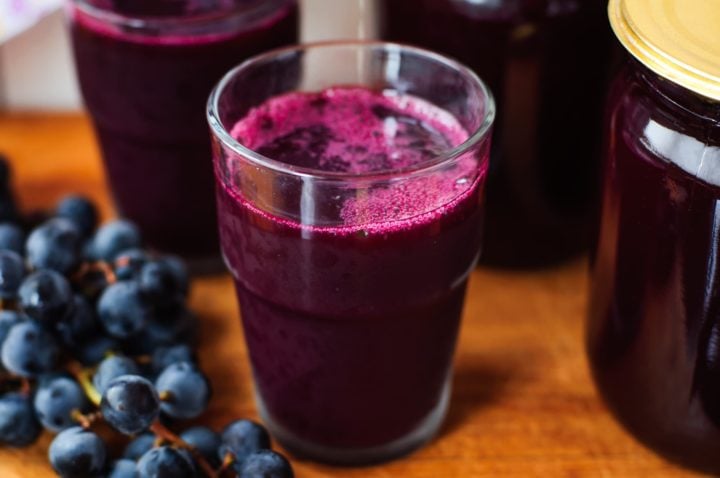
Grapes are classified as berries and come in various colors and shades, including green, red, blue, purple, and dark red. In a year, roughly 72 million tons of different types of grapes are planted worldwide. It has been farmed for a thousand years, and its use in the winemaking industry is truly its hallmark.
While the winemaking business consumes a large portion of the world's grape production, the remainder is consumed as fruits, with a small percentage being used to make dried fruits. Whether as wine, raw fruit, or dried fruit, a bunch of this delectable fruit is your key to your health.
The grape, also known as the “queen of fruits,” is a famous fruit worldwide due to its portability, texture, flavor, and variety. It sure satisfies, but what’s more?
For almost 6000 years, the medicinal potential of the grapevine and its fruit, Vitis vinifera, has been acknowledged. Grapevine sap was used to make an ointment to cure skin and eye disorders in ancient Egypt. The fruit was pulverized into wine elixirs or ripened to treat nausea, constipation, cholera, smallpox, liver disease, and malignancies.
In the present day, in the era of non-communicable diseases, it has a plethora of potential health benefits. Grapes have been shown to protect against cancer, heart disease, high blood pressure, and constipation in studies. It is an antioxidant, anti-inflammatory and is packed with vitamins and minerals.
Table of Contents
The Grapes Variety
If you think all grapes are created equal, think again. There are many ways to classify grapes. However, in this article, two fundamental methods of sorting the grapes are considered: first, by their color, and second, by their function.
According to color, there are red grapes and white grapes. By function, grapes are classified as wine grapes or table grapes.
The color variation is due to a component called anthocyanin, which contributes to the antioxidant power of grapes. The deeper the color, the more anthocyanin it contains.
The amount of antioxidants in grapes is determined by several factors, including the grape variety, geographic origin, and processing. Similarly, the number of antioxidants in wine also differs, with more significant levels in red wine.
Red Grapes
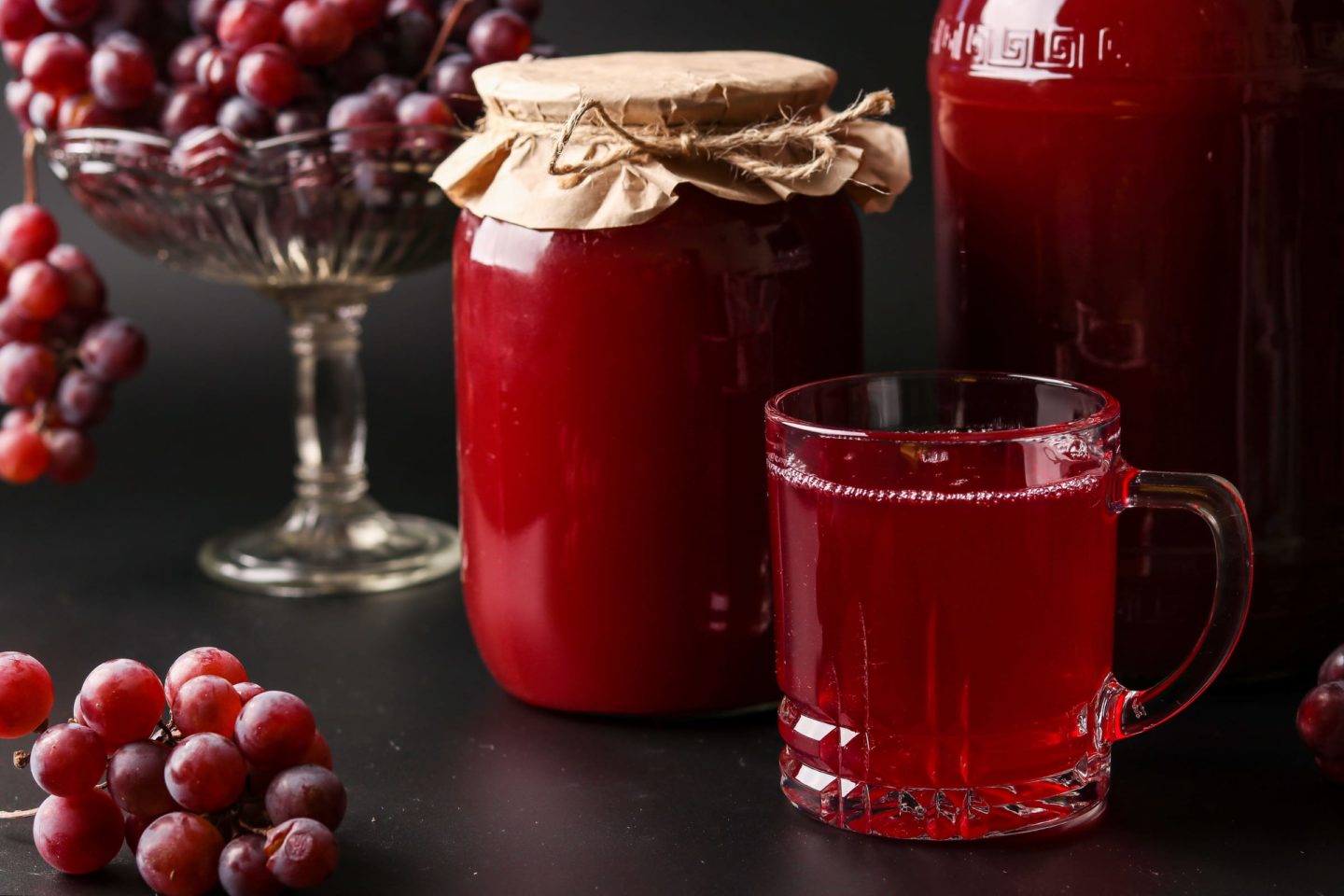
The red grape varieties are Moon Drops, Concord, Pinot Noir, Lemberger, Sweet Jubilee, Valiant, Champagne, and Crimson Seedless.
The sweetness of red grapes is typically comparable to that of white grapes.
Because of the component anthocyanin, antioxidants are more abundant in dark red grapes than in white grapes. This pigment also gives the tint of red grapes.
Resveratrol, a flavonoid also found abundantly in red grapes, is a popular topic in research. It's also found in red wine, and it's assumed to be responsible for red grapes and wine's health benefits.
Manganese is a crucial mineral for the body's proper functioning. Manganese is necessary for the formation of strong bones and connective tissue. Manganese is abundant in both red and white grapes. A cup of grapes provides ⅓ of your daily recommended intake.
Concord grapes are a subtype of red grapes. They have a deep bluish-purple color and are popular as table grapes. Flavorful juices, jellies, jams, and baked items are made with them.
These nutrient-dense grapes are exceptionally high in flavonoid antioxidants and the phenolic compound resveratrol. Both are potent plant compounds with anticancer, anti-inflammatory, and heart-healthy properties.
In a study, Concord grapes had a significantly higher Total Antioxidant Capacity (TAC) than any other red or white grapes.
White grapes
Cotton candy, Riesling, Gewürztraminer, Moon Balls, Sultana, and Fly Muscadine are the types of white grapes. Although sweet as the red variety, white grapes have an additional sour, acidic flavor. White grapes are also devoid of resveratrol.
Wine grapes
Wine grapes have a thicker peel, which provides additional taste to the wine. Because these grape varieties are smaller than table grapes, they have a more concentrated flavor. A vine of wine grapes has fewer fruits on it.
These types of grapes also have big seeds that take up a lot of space in the fruit. Seeds, like the skin, are crucial for enhancing the flavor of the wine. Finally, wine grapes have higher sugar content.
Table grapes
Table grapes have a thin peel that makes them easy to bite through. They also are seedless or have tiny seeds. Unlike wine grapes, where the goal is to produce a smaller number of high-quality grapes, table grapes aim for a higher yield.
According to several studies, red grape juices may have the same heart-healthy benefits as red wine. Among the studies, they lower the chance of blood clots, reduce bad cholesterol, keep the heart's blood vessels healthy, and assist in maintaining healthy blood pressure.
A bunch of grapes is indeed a powerhouse of health-promoting elements such as antioxidants, vitamins, and minerals — everything you need for a strong body. Like other fruits and vegetables, grapes are also a good source of fiber and water.
Vitamins and Minerals in Grape Juice
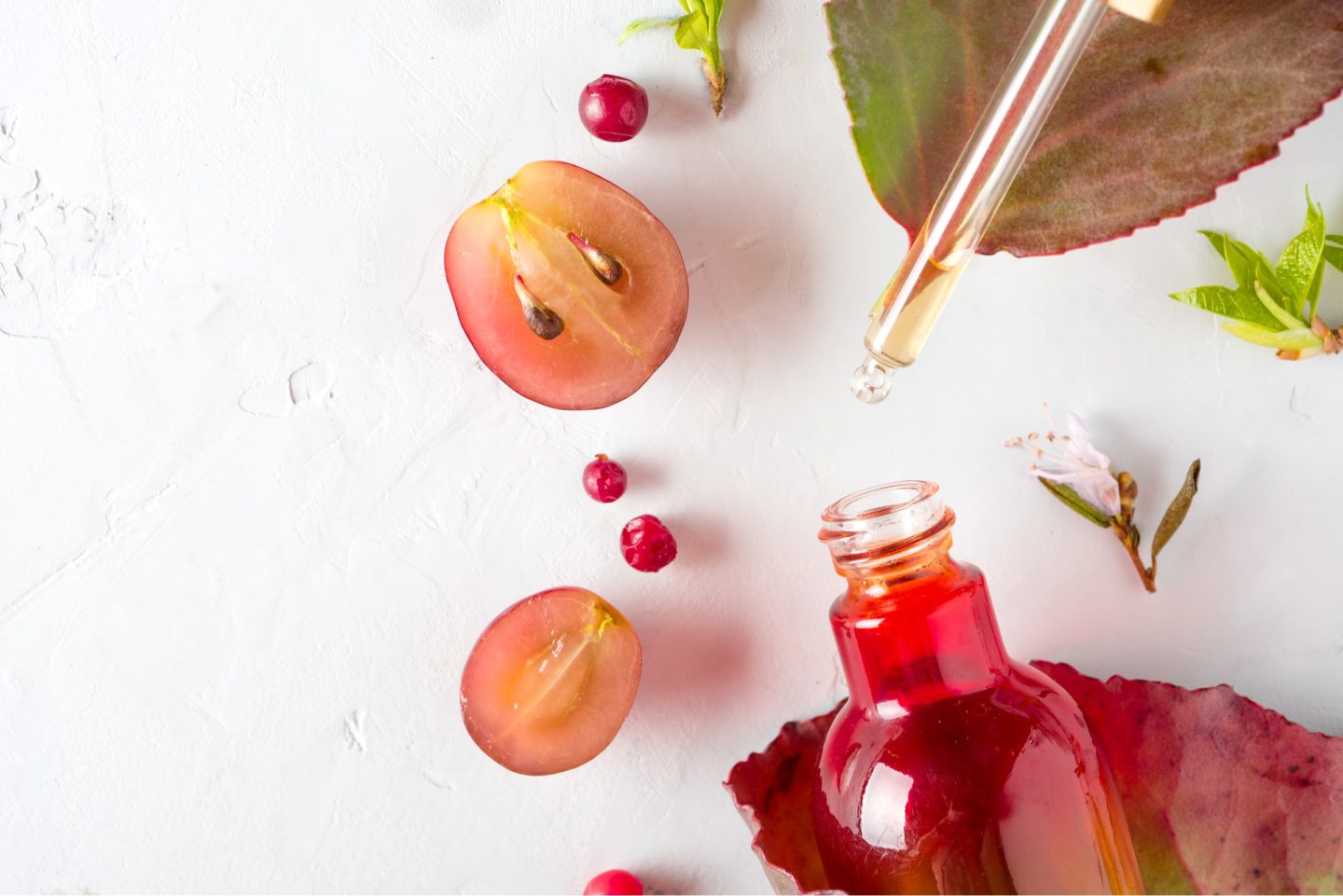
The whole grape, including the skin, flesh, and seeds, is used to make grape juice. It parallels most of the vitamins and minerals found in table grapes and the health benefits provided by the nutrient-dense seeds.
Vitamin C and Vitamin K are found in large amounts in grape juice, among the vitamins found in grape juice. Other minerals found in this fruit juice are calcium, magnesium, phosphorus, and potassium.
Vitamin K, a fat-soluble vitamin essential for blood clotting and bone health, is found in more than a quarter of a cup (151 grams) of grapes. Vitamin K helps to promote the hemostasis of blood during bleeding episodes or trauma. A high potassium intake has been linked to a lower risk of stroke, protection against muscle loss, and bone mineral density maintenance.
Vitamin C is a powerful antioxidant that wards off oxidative stresses that are usually products of cell metabolism. It also supports connective tissue health as it is a requirement in producing collagen. Vitamin C, when consumed at high levels, can also aid in immune system function and illness prevention.
According to the United States Department of Agriculture (USDA), half a cup of grape juice offers 50 percent of the daily required vitamin C intake.
10 Health Effects of Grape Juice
Antioxidant
Grapes contain a variety of potent antioxidant chemicals. The most studied of which are resveratrol and flavonoids for the promotion of good health. The skin, stem, leaf, and seeds of grapes contain the most antioxidants rather than the pulp.
Flavonoids are polyphenolic substances that are found in fruits, vegetables, chocolate, coffee, tea, wine, and grape juice. Flavonoids-rich meals are linked to a lower risk of chronic diseases. Dietary flavonoids may provide protection due to their antioxidant properties and ability to minimize the everyday oxidative stress experienced by the body.
In the study, supplementing with 10mL of Concord grape juice for two weeks increased the body’s antioxidant activity.
The primary source of resveratrol is found in the skin of grapes. This compound protects the cells from damage, promotes the survival of cells, and reduces the harmful effects of ultraviolet and radiation. As such, research has found its propensity to halt the initiation, production, and multiplication of cancer cells.
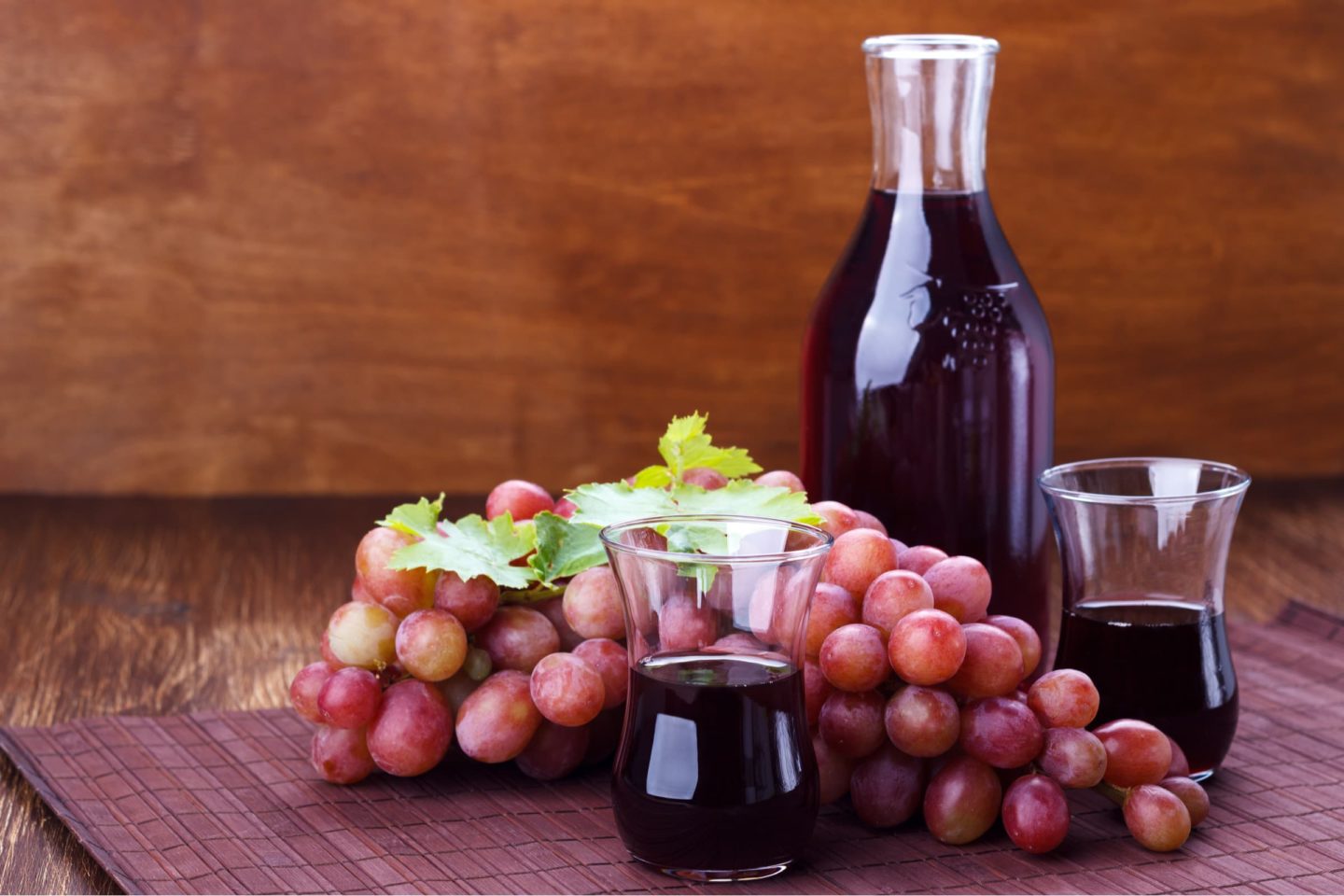
Red wine and red grapes contain almost equal amounts of resveratrol. However, we must take wine in moderation. The dietary guidelines for Americans describe moderate alcohol consumption as up to one drink per day for women and up to two drinks per day for men.
The anthocyanins that give red grapes their color also confer additional antioxidant benefits. A study has shown that these components decrease the breakage of DNA in the cells of the body. This stimulates apoptosis, the process of programmed cell death that removes unwanted or abnormal cells and paves the way for the growth of younger, healthier cells.
A study that compared the anthocyanin levels in red grape juice and wine found that the sugar content of grape juice improves anthocyanin absorption. The potential influence of alcohol on its uptake is also an area of concern. Also, other components that emerge during wine processing may obstruct anthocyanin absorption.
Helps in Cancer Protection
Chemoprevention, or prevention of cancer by dietary elements, holds a lot of promise in our fight against cancer. Grape juice possesses the same potential.
Resveratrol has been extensively researched for cancer prevention and treatment, one of the molecules found in this fruit. It has been demonstrated to protect against cancer by lowering inflammation, serving as an antioxidant, and preventing cancer cells from growing and spreading throughout the body.
Aside from resveratrol, the unique combination of plant components, quercetin, anthocyanins, and catechins, all act in concert to exert robust anti-cancer properties. All these components are abundant in grape juice extracts.
There is another fact in grape juice intake that is a breakthrough in research. In another study, the anti-cancer effect was observed during all three phases in the pathogenesis of cancer: initiation, promotion, and progression. There was an arrest of cancer cells at these stages before the illness became full-blown.
In addition, one study found that eating 1 pound (450 grams) of grapes each day for two weeks reduced signs of colon cancer risk in 30 adults over the age of 50.
In test-tube investigations, grape extracts were found to inhibit the growth and spread of human colon cancer cells. It may slow or prevent the development of tumors in lymph nodes, liver, stomach, breast, colon, skin cancer, and leukemia. While there has been little research done on humans about the effects of grapes on cancer, it's been widely documented that a diet rich in antioxidant-rich foods, such as grapes, reduces cancer risk.
Promotes a Healthy Heart
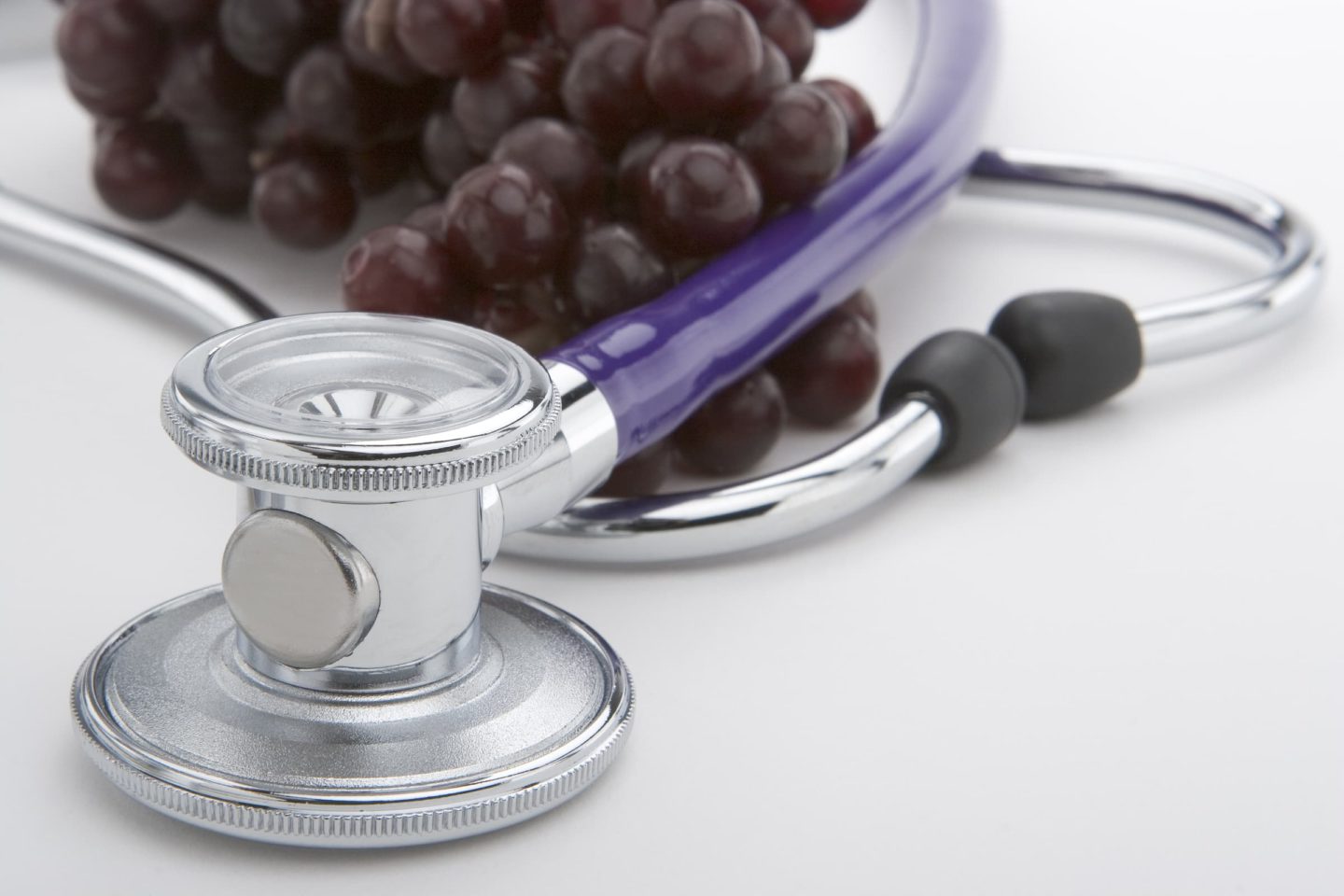
In more ways than one, grape juice consumption can have a beneficial effect on heart health.
Grapes provide 288 mg of potassium per cup (151 grams) or 6% of the recommended dietary intake. This mineral is required to keep blood pressure in a healthy range. Potassium also balances the sodium content in the blood vessels, whereby too much can lead to hypertension. A study found that people who ingested more potassium than sodium had a lower risk of dying from heart disease than those who consumed less potassium.
Grape polyphenols affect the heart in a good way by decreasing levels of oxidants that cause atherosclerosis or the hardening of the blood vessels. This effect is due to the reduction of bad cholesterol or low-density lipoprotein (LDL). There is also improvement of blood vessel function and reduction of inflammation in those with grape juice intake.
Platelets play a critical role in all stages of atherosclerosis. Antiplatelet medications, especially aspirin, have been shown to reduce cardiovascular risk. Because polyphenols have been found to have platelet inhibitory effects, grape consumption has piqued interest as a potential source of protection.
In another study, there was an improvement in the capacity of the heart to pump blood effectively. This function is often restricted due to blockage of the heart vessels, which causes the heart to function as a muscle unit ineffectively.
Lowers Cholesterol levels
The American Heart Association also studied the effects of grape juice. The journal pointed out that the flavonoids present in the juice improved blood flow in participants with coronary artery disease.
At the level of the stomach, grape juice already halts excess fat absorption. Also, it decreases the amount of bad cholesterol that the body can absorb by directly targeting the LDL receptor.
In one study, researchers found that consuming three cups (500 grams) of red grapes each day for eight weeks reduced total and "bad" LDL cholesterol in 69 patients with high cholesterol. Notably, white grapes didn't have the same effect as red grapes.
Diabetes Prevention
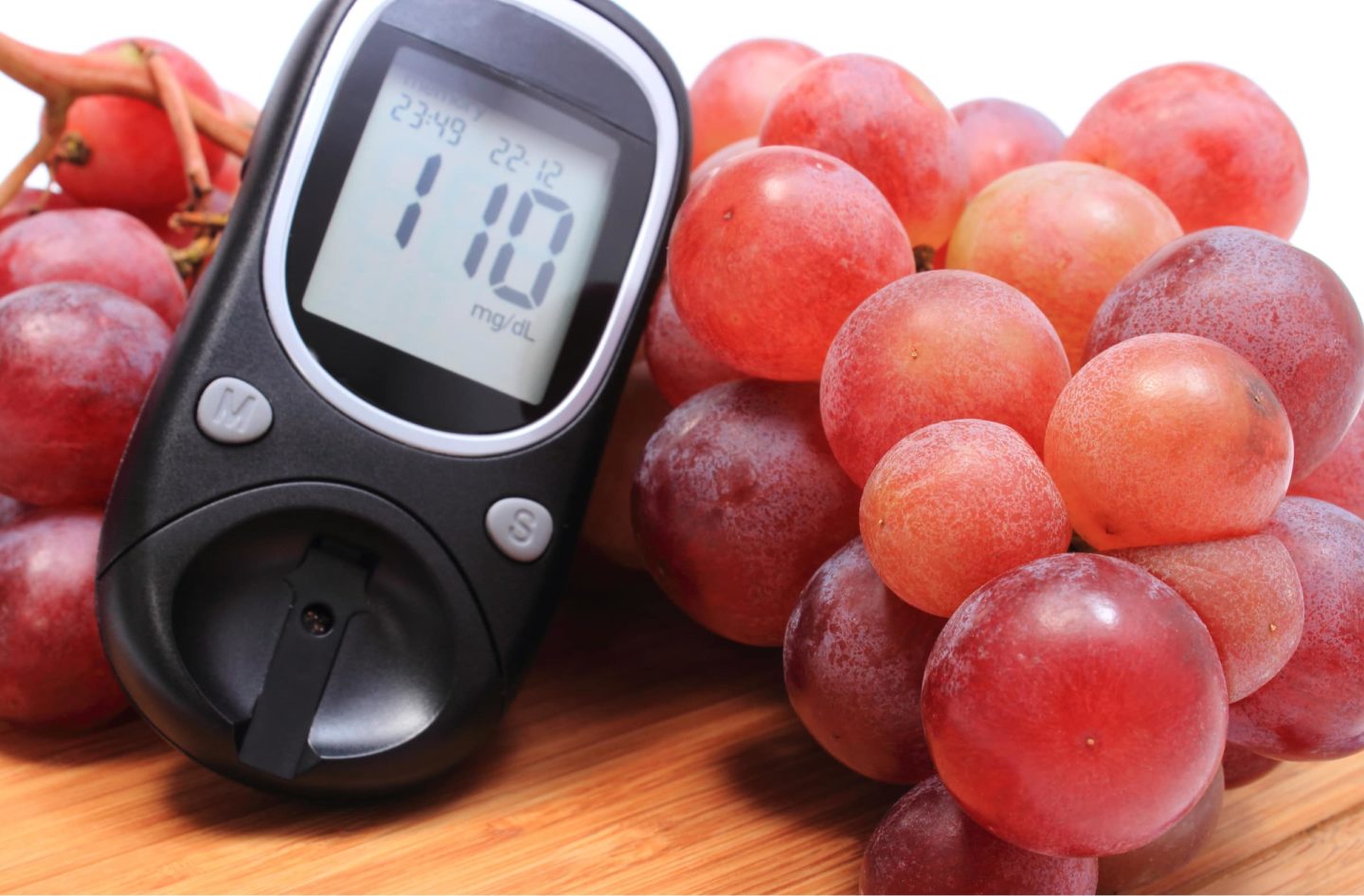
Grapes include 23 grams of sugar per cup (151 grams), so you might be wondering if they're a good choice for people with diabetes.
Despite these sugar levels, grape juice has a low glycemic index (GI) of 53. The glycemic index is based on a score, which calculates how quickly a food raises blood sugar levels. Sudden spikes in blood sugar can bring about unfavorable effects for those who already struggle with keeping their blood glucose levels within the normal range.
Grapes are high in phytochemicals that have antioxidant and anti-inflammatory properties. Several studies support that grapes or grape components may have protective effects against metabolism issues seen in people diagnosed with type-2 diabetes. Furthermore, its anti-inflammatory properties may help against the consequences of type 2 diabetes, such as cardiovascular disease.
Resveratrol has also been demonstrated to boost insulin sensitivity, which may improve your body's capacity to utilize glucose and, as a result, lower blood sugar levels. It also increases the number of glucose receptors on cell membranes, which could help with blood sugar levels.
Persons with diabetes are also at a higher risk for a heart attack because of accelerated inflammation. In a study done in animals, there was a reduction in inflammatory mediators, triggering cell death in the heart muscles.
Other complications of diabetes are its effects on the nerves and the small vessels of the eye. Resveratrol has been shown in several trials to protect against diabetic neuropathy, which affects nerve function. This is thought to be related to the compound's neuroprotective properties.
Eye Disease Protection
The antioxidants lutein and zeaxanthin are also found in grapes. Several studies have shown that these chemicals aid in the protection of the retina. The retina is that part of the eye that is involved in vision.
In an animal study, supplementation with grapes showed fewer symptoms of retinal damage and more excellent retinal function compared to no intake. It lessens the daily oxidative stress, thereby, improving the integrity of the retina.
Resveratrol significantly protects retinal cells in the human eye from ultraviolet-A light. This could help reduce the risk of age-related macular degeneration (AMD), a prevalent eye condition.
According to a review, resveratrol may also help protect against glaucoma, cataracts, and diabetic eye disease.
Brain Power
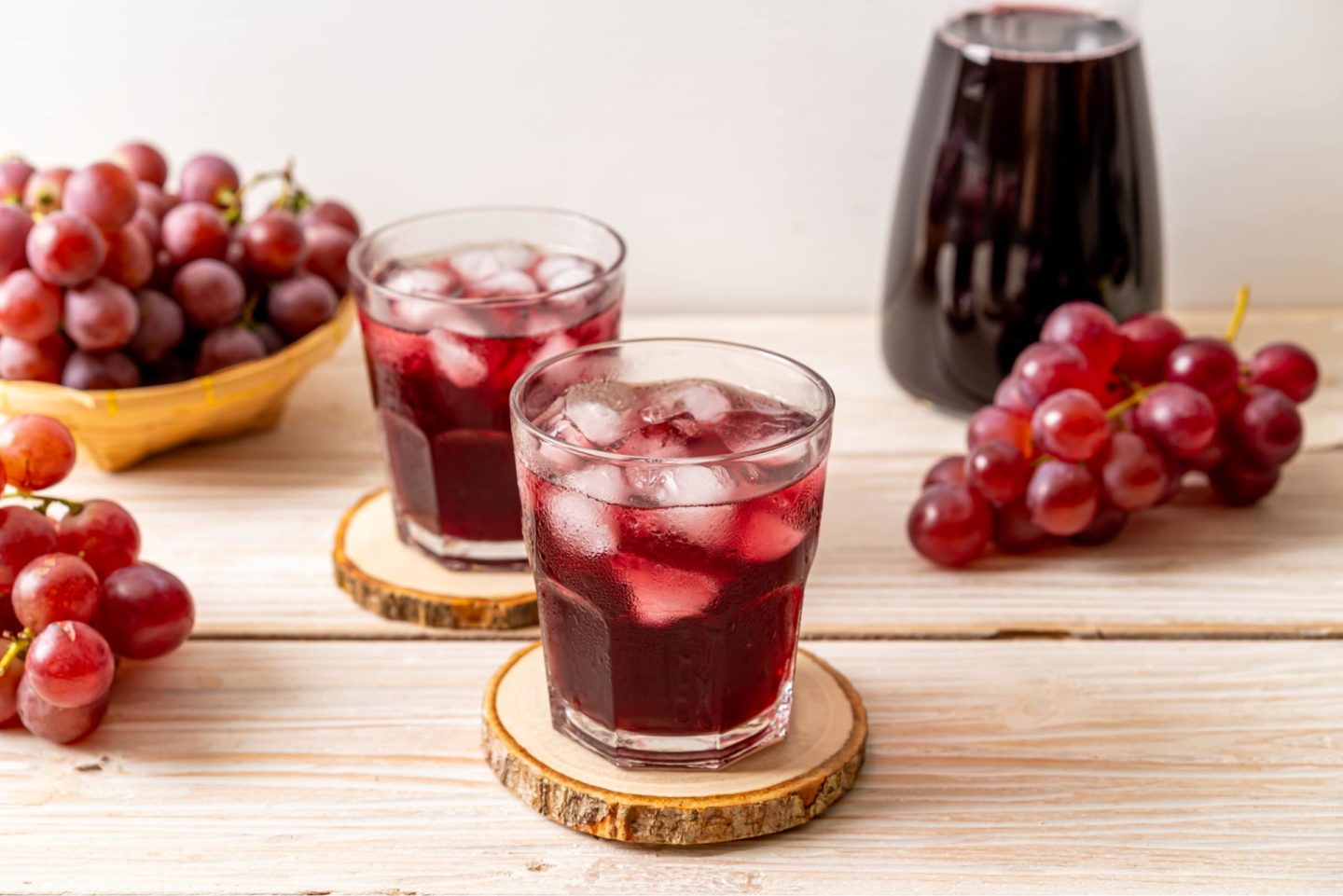
The aging process does not spare the brain. Both oxidant and inflammatory reactions that affect the brain can cause irreversible damage when left uncorrected.
The polyphenolic compounds present in grape juice counter these harmful effects on the brain. In a study, it improves verbal memory, attention, and cognitive function.
Supplementation with 250 mg of grape supplement per day significantly improved results when given over 12 weeks. There was an enhanced signal relay between brain cells which improved neuronal activity.
Another research of healthy young individuals found that drinking roughly 8 ounces (230 ml) of grape juice increased memory speed and mood 20 minutes after consumption. Compared to previously published USDA studies, Concord grape juice has the highest total antioxidant levels of all foods.
Bone Health
Grapes are high in calcium, magnesium, potassium, phosphorus, manganese, and vitamin K-- the essential nutrients for bone health.
Although resveratrol has been demonstrated to enhance bone density in rats, these findings have yet to be verified in people.
There are currently no human studies on the effect of grapes on bone health.
Antimicrobial Properties
Antibiotic resistance is one of the problems encountered by the healthcare industry today. As more people use them without a prescription, more and more bacteria are becoming unresponsive to simple antibiotics. Thus, the antimicrobial properties of natural compounds in grape juice have been gaining attention in research.
Grapes include many chemicals that have been demonstrated to protect against and combat bacterial and viral illnesses.
In one study, grape juice extract inhibited the growth of pathogenic respiratory bacteria. Potential respiratory pathogens, including P. aeruginosa, S. aureus, M. catarrhalis, and E. faecalis are very difficult to treat in hospitalized children.
Grapes are high in vitamin C, widely known for their immune system-boosting properties, especially against viral infections. In test-tube investigations, grape skin extract has been found to protect against the flu virus. Chemicals in grapes blocked the herpes virus, chickenpox, and yeast infections from spreading.
The resveratrol component in grape juice may also help to prevent food poisoning. When added to several types of food, it inhibited the growth of hazardous bacteria such as E. coli.
Anti-aging
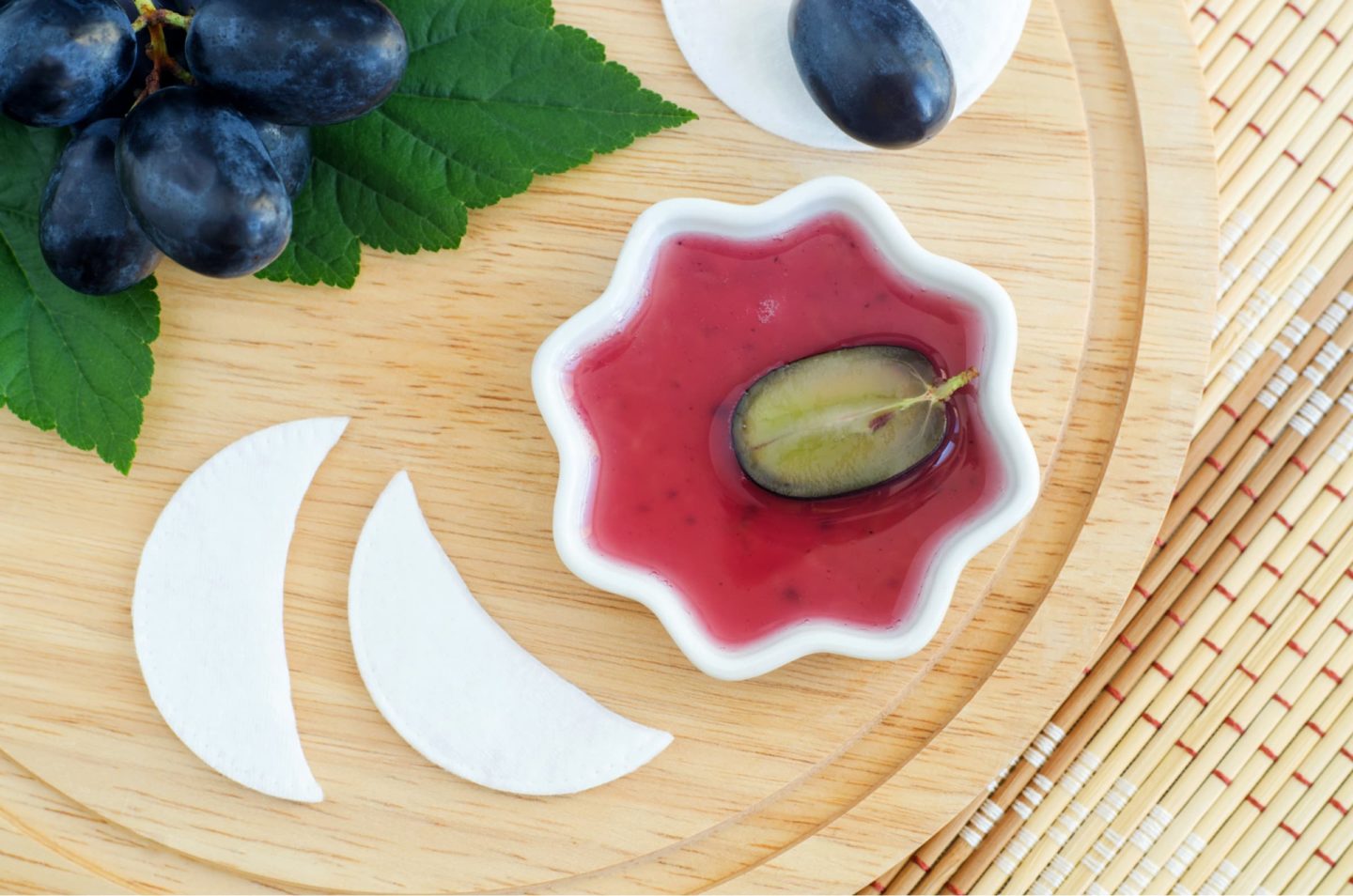
Can grape juice be your anti-aging secret?
Grapes contain plant chemicals that may influence aging and lifespan. In a variety of animal studies, resveratrol has been demonstrated to extend lifespan. Grape proteins, known as sirtuins, have been shown to increase longevity.
The SirT1 gene is one of the genes that resveratrol activates. Low-calorie diets stimulate the same gene, which has been related to longer lifespans in animal studies.
Resveratrol also affects many other genes linked to aging and longevity. Antioxidant activity and production of good genes may be your one shot for anti-aging.
The “French Paradox”
This story may have been familiar and may have rung your ear many times. This 'French paradox' refers to the exceptionally low incidence and fatality rates from ischemic heart disease among the people living along the Mediterranean coast of France.
Somehow, the French are 'protected' from severe cardiovascular problems despite their saturated fat consumption. It's amazing when data shows countrywide levels of serum cholesterol, blood pressure, and smoking prevalence are not that significantly lower in France than elsewhere.
The French are somewhat immune to ischemic heart disease due to their high alcohol consumption and antioxidant vitamin intake, provided by grape wine intake.
Recommended Dose
Grape juice is considered safe in dosage ranges of 4 to 18 mL/kg/day and 100 to 500 mL/day for 5 to 30 days, generally in two doses.
Side Effects of Too Much Grape Juice
The abundance of resveratrol grape juice also comes with some precautions.
Adverse events can include severe allergic reactions to grapes and grape products. At the first sign of an allergy, please contact your doctor.
Other potential adverse effects include stomach upset, indigestion, nausea, vomiting, cough, dry mouth, sore throat, infections, headaches, and muscular problems.
For people who have the following conditions, grape juice should be used with caution:
Pregnancy and breastfeeding: There isn't enough information on the effects of consuming grapes during pregnancy and while breastfeeding, either as supplements or in greater proportions in meals. To be on the safe side, avoid taking it.

Persons prone to bleeding: Grapes may slow down the blood clotting process in people who have problems with blood coagulation. That poses a problem for those with bleeding disorders or who take blood-thinning medications. It raises the risk of bruising and bleeding.
Persons undergoing surgery: Grapes may help prevent blood clots during surgery, resulting in more bleeding during and after surgery. At least two weeks before a scheduled surgery, stop using prescription doses of grapes.
Resveratrol content also interacts with an enzyme in the liver called cytochrome. In individuals taking drugs, such as tamoxifen, this may be potentially dangerous, increasing the drug’s toxicity.
The formation of platelets is inhibited by resveratrol in vitro. Be careful when using drugs that inhibit coagulation as this combination can increase the risk of bruising and bleeding.
Grape Juice Preparation
For those who are not fond of taking large proportions of fruits, the best way to enjoy the benefits of grapes is to prepare your own organic grape juice.
Choose
Look for grape bunches with green, supple stems and ample fruit. Bloom, that white powdery layer on your grapes is a healthy, naturally occurring chemical that protects the fruit from moisture and rotting.
Grapes should be kept chilled, and the back of the fridge is the best place to keep them because it is usually the coldest.
Store
Examine the outside for signs of mold, shriveling, or a weak stem. Any grapes that show these characteristics will decay more quickly and affect the others. Discard any grapes that aren't in good shape.
Keep them cold. Grapes last longer when kept cold. Because they can absorb scents, keep them away from smelly foods like onions.
Keep the original package. Grapes will not turn mushy if kept in their original container. Furthermore, the container in which they were placed usually has the appropriate covering and ventilation to extend shelf life.
Grapes, like many other fruits, should be stored without being washed. Washing before storing might encourage moisture, hastening the decomposition process. Instead, just before eating, rinse your grapes.
Freeze them: Freeze your grapes to use later in smoothies, drinks, or even as a nice, refreshing snack.
Prepare
Here are some ways to prepare your grape juice:
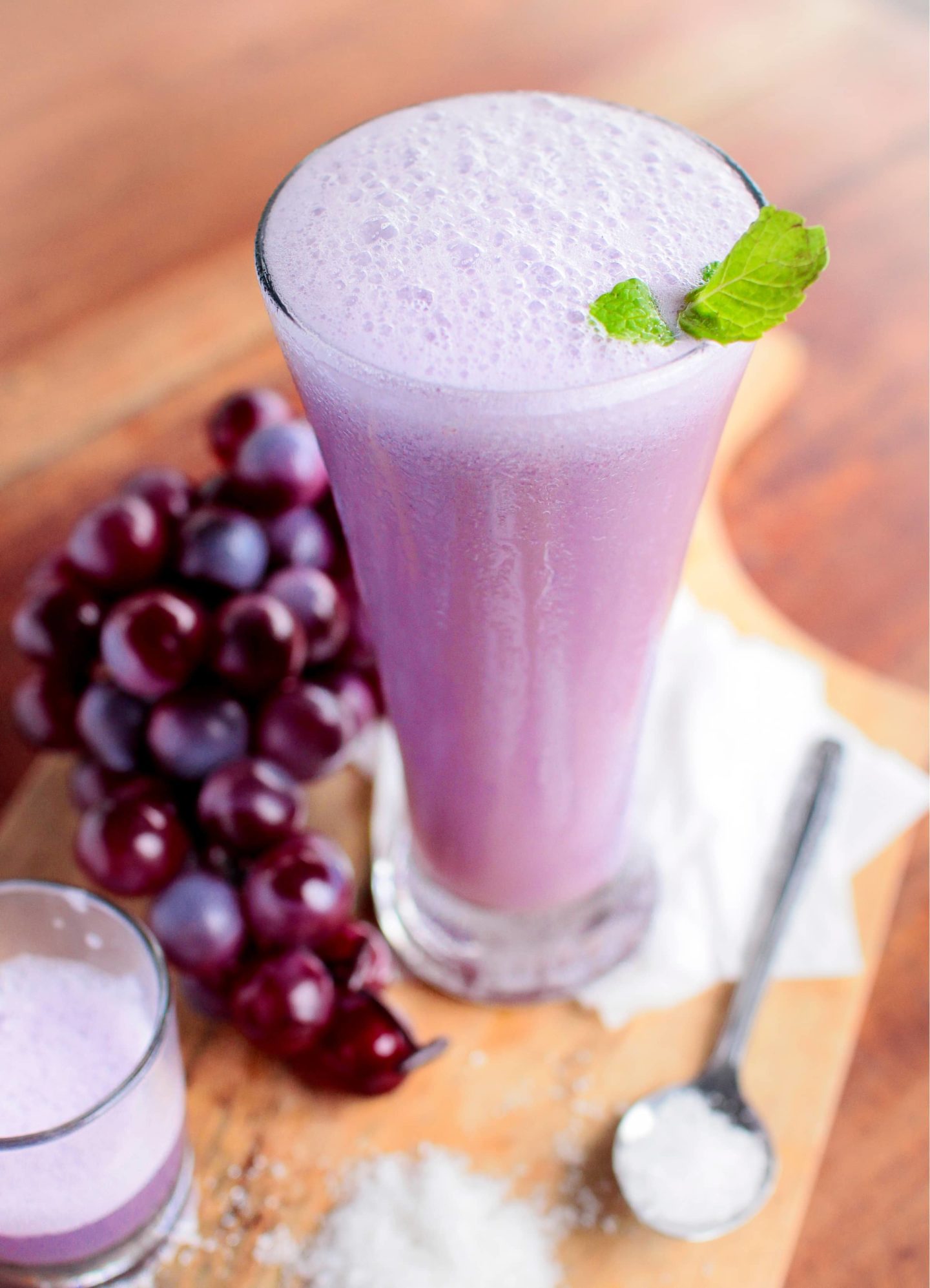
- 1 ¼ cups 100% Concord Grape Juice
- ¾ cup low-fat plain Greek yogurt
- 1 ½ cups ice cubes
- 1 tablespoon fresh mint leaves
In a blender, combine all of the ingredients in the order stated.
Depending on the size of the ice used, it may take up to 2 minutes to blend until completely smooth.
Pour the mixture into glasses and serve right away.
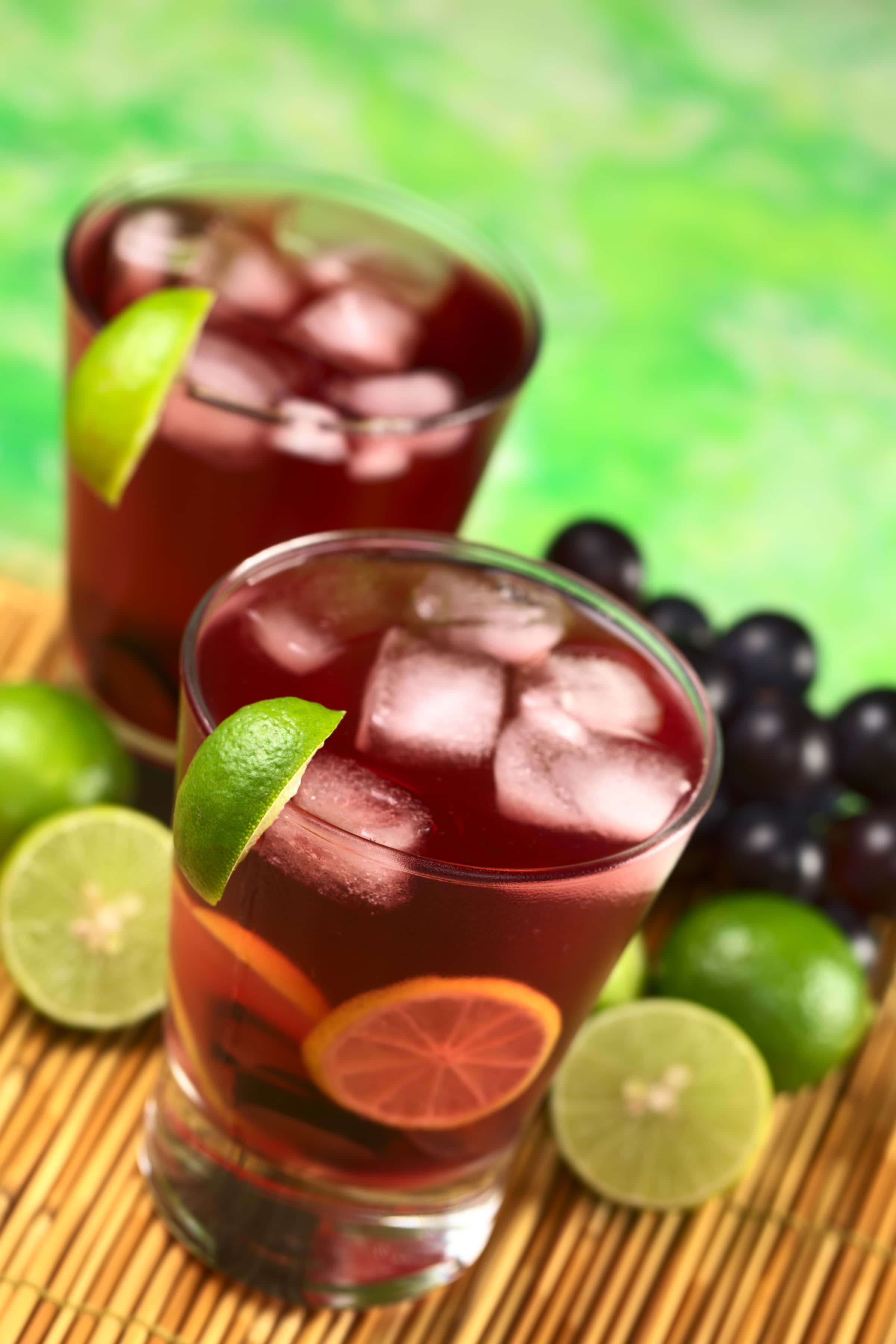
- 16 fl oz Concord grape juice (from 40 oz Concord grapes)
- ¼ cup water
- 8 tsp honey
- 1 tsp lime juice
- 1 tsp rosemary fresh
- 2 cups ice cubes
Combine the grapes, water, honey, lime juice, and rosemary in a small saucepan.
Simmer for 10 minutes over medium-low heat. Remove the pan from the heat and set it aside to cool.
Blend the ingredients in a blender until everything is well combined.
Cover a strainer with cheesecloth and place it over a basin. Fill the cheesecloth with the blended juice and gather the four corners to make a pouch. Squeeze the liquid into the basin.
Remove the residue and throw it away.
Fill a pitcher halfway with juice. Serve with ice cubes.
Grape and Apple Cider Vinegar Detox Drink
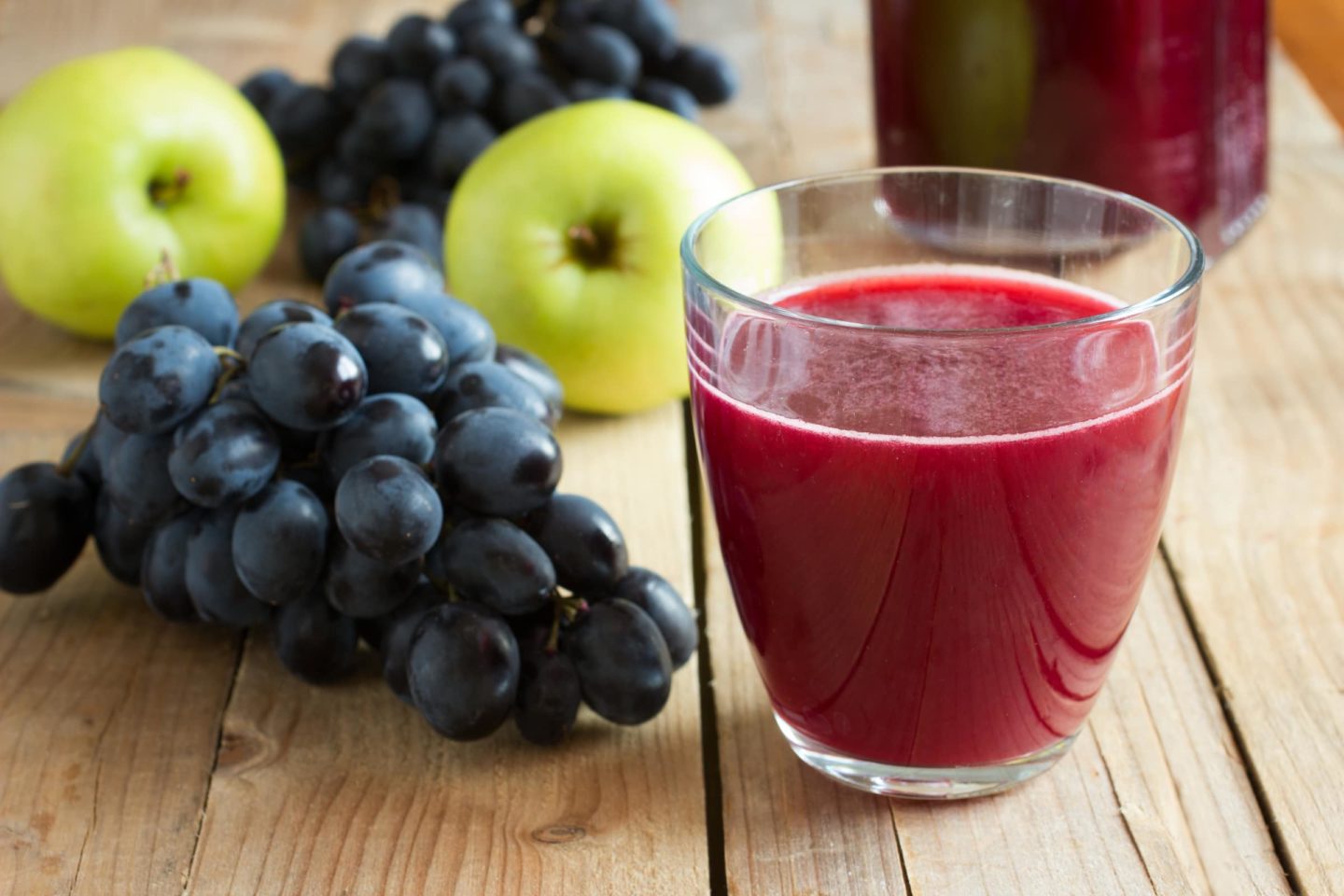
- ¼ cup Concord grape juice, not from concentrate
- 3 Tablespoons Apple Cider Vinegar
- 12-13 ounces filtered cold water
- 6-7 drops of liquid stevia, or more, if needed.
In a cup, add all ingredients and toss or shake to blend.
Taste, and if necessary, add more stevia.
Serve over ice or cool.
A Bundle of Benefits in A Bunch of Grapes
A bunch of grapes can be your new healthy companion in your fitness journey. Because of the high antioxidant levels in grapes, they are sure to have a positive impact on the human body, even when you're consuming only a glass each day. The anti-inflammatory properties of grapes make it ideal for those suffering from muscle, joint or chronic inflammation. It is also backed up with evidence for protection against cancer, diabetes, and degenerative diseases.
Enjoy your cup of grape juice today and see the difference.

Leave a Reply